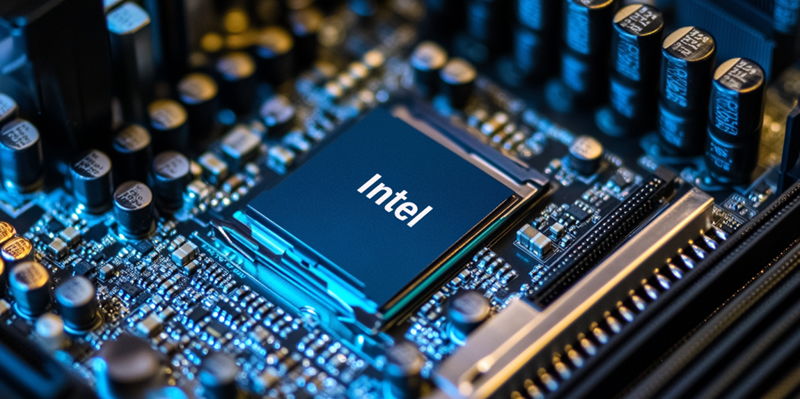Intel is grappling with substantial challenges related to its 13th and 14th-generation desktop processors, particularly impacting the Core i9-13900K and Core i9-14900K models. These issues have not only precipitated performance instability and degradation but have also spurred numerous BIOS updates aimed at mitigating the problems. Despite these corrective efforts, user feedback and benchmark tests indicate that some performance drops continue to persist.
Persistent Instability and Performance Degradation
Intel’s latest processor releases, the 13th and 14th-generation models, have been plagued by considerable instability issues, causing notable performance drops and fluctuations. Users have reported that these instability problems are especially prevalent in flagship models like the Core i9-13900K and Core i9-14900K. These challenges have significantly disrupted user experience and impacted benchmark scores, leading to widespread dissatisfaction.
To tackle these issues, Intel has rolled out a series of BIOS updates. However, these updates have not fully addressed the problem, according to many reports from users and benchmark tests. For instance, after applying the latest BIOS update, the Core i9-13900K displayed a 6.5% drop in single-core performance in the Cinebench R15 benchmark. Similarly, the Core i9-14900K saw a 2% reduction in multi-core performance in Cinebench R23. Of particular note is the fact that this positions the Core i9-14900K behind AMD’s Ryzen 9 7950X in multi-core performance, highlighting the competitive disadvantage Intel currently faces.
Impact Mitigation Efforts by Intel
Despite these issues, Intel’s mitigation efforts appear to be making some progress, though the path to full recovery remains unclear. The magnitude of the performance drops, while still significant, is less drastic than observed in previous instances. Earlier performance reductions ranged from 9% to 20%, signaling that Intel is gradually getting a handle on the situation through iterative updates. A recent blog post from Intel revealed that the root cause of these issues seems to stem from microcode and BIOS code prompting elevated core voltages, which results in voltage minimum (Vmin) shifts during idle or light activity periods.
The latest BIOS update, while mitigating the impact of these issues to some extent, hasn’t entirely eradicated performance degradation. Both users and industry analysts continue to express concern over the persistent instability. The current BIOS update has managed to bring the processors’ performance changes within a typical system variance margin, offering a partial solution. Nevertheless, the lingering issues could potentially erode consumer confidence in Intel’s high-end CPU offerings, affecting its market share and reputation.
Competitive Landscape and Future Outlook
The rivalry between Intel and AMD remains fierce, especially in the desktop processor market, where each company’s advancements and innovations are closely scrutinized. AMD’s Ryzen series has been making significant inroads, frequently offering competitive performance at lower price points compared to Intel’s products. This intensifying competitive dynamic has compelled Intel to stay agile and innovative, despite its ongoing internal challenges.
Intel’s future competitiveness is heavily contingent on the successful launch of its upcoming Arrow Lake architecture, scheduled for release in October. This launch is critical because it is expected to mark a robust shift addressing the existing issues plaguing the 13th and 14th generations. Both market observers and consumers are keenly awaiting the performance benchmarks of the Arrow Lake CPUs, as these will serve as decisive indicators of Intel’s future competitiveness.
Both Intel and AMD are gearing up to release updates aimed at improving performance. AMD’s upcoming update for its Ryzen 9000 series demonstrates a proactive approach to maintaining a competitive edge in the marketplace. These developments underscore the importance of continuous innovation and the need for reliable, high-performance products to capture consumer interest and market share.
Market Dynamics and Strategic Implications
Intel is currently facing significant difficulties with its 13th and 14th-generation desktop processors, most notably the Core i9-13900K and Core i9-14900K models. These complications are causing notable performance instability and degradation, which are severely affecting user experiences. As a result, Intel has been compelled to release numerous BIOS updates in an attempt to address and mitigate these underlying problems. However, despite these consistent corrective efforts, various user feedback and benchmark tests have highlighted that some performance issues have not been fully resolved and continue to persist. This ongoing struggle has led to frustrations among users who rely on Intel’s processors for demanding applications and high-performance computing tasks, creating a ripple effect of uncertainty and dissatisfaction in the tech community. The persistence of these challenges underscores the critical need for Intel to find a lasting solution to stabilize their processor performance, ensuring both reliability and maintaining their reputation in the highly competitive processor market.

